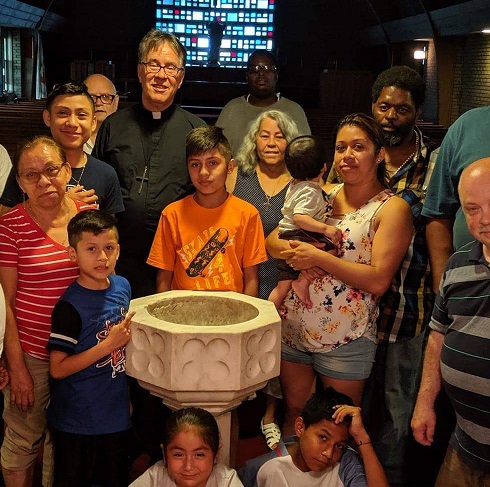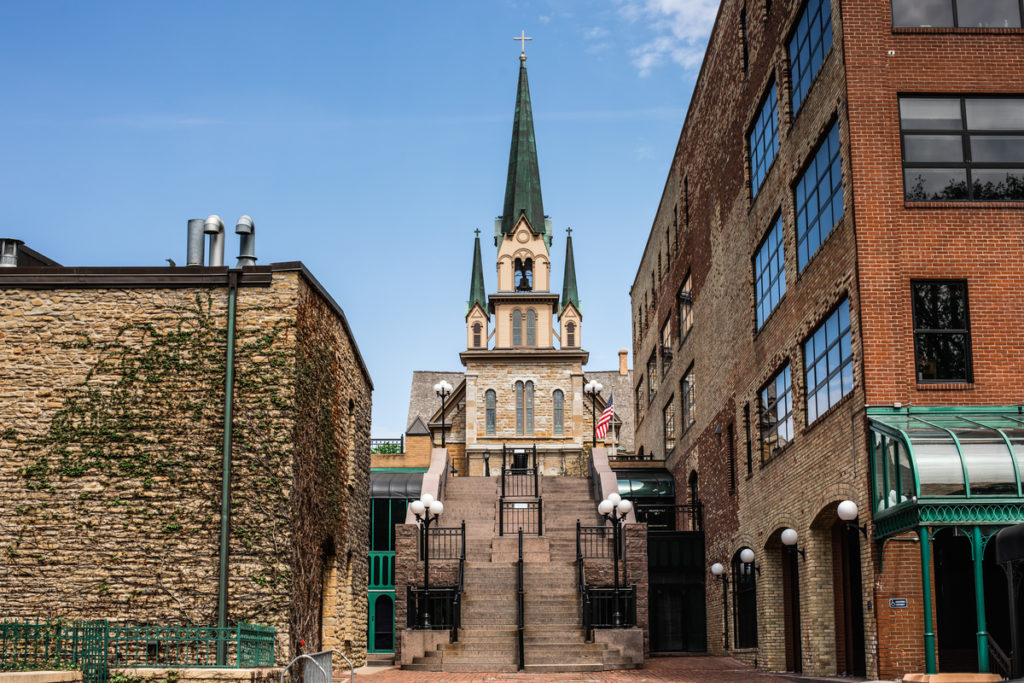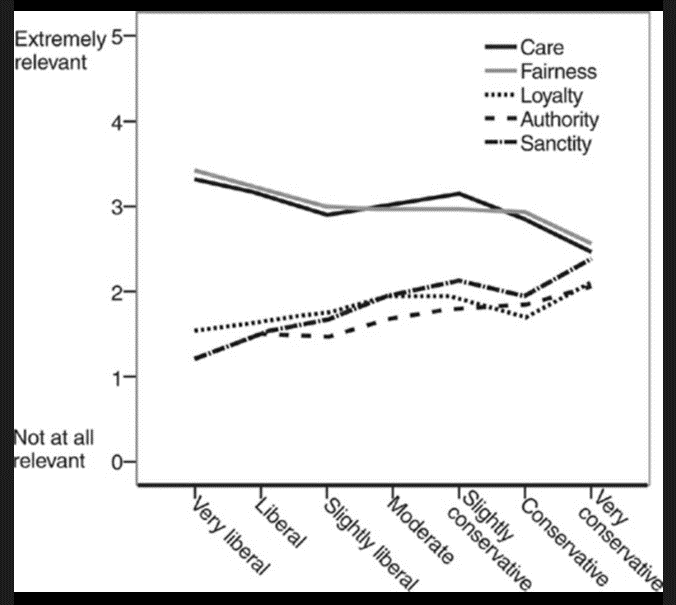If Not CRT, Then What?

Here’s a true story, related to me by someone who witnessed it. A small church, considering departure from the ELCA, solicited questions from the congregation. One question surprised people, but it was, apparently, asked in earnest: If we leave the ELCA, will we go back to being a church that bans people of color?
Wait—what? “Go back”? “Ban”? Some questions require their own hour to answer. Did the questioner believe that her congregation had once banned persons of color? Why? Also, had the questioner never heard that the ELCA is “the whitest denomination in America,” as one of its own pastors has called it (not that other Lutherans are far behind)? What string of pastors had neglected to teach, not only Lutheran failures in racial reconciliation, but also the Lutheran church’s rich contribution to civil rights, refugee resettlement, and the fair treatment of all people in congregation, school, and institutions of care?
I don’t know how the congregation’s leaders ultimately addressed that question, but it proves that the question of race is on people’s mind. Lutherans want to know where it resides in their faith and church’s life.
You know this. You can’t breathe in America and not know it. It has dominated the news, and one particular development has especially captured recent attention: critical race theory (CRT). In general, conservatives have balked at CRT, criticizing instances of “CRT training” that seem to demean and unfairly condemn people of European descent. States have begun passing resolutions banning its use in government and public education.
That criticism has echoed in the church’s halls as confessing Lutherans of various stripes point out where CRT differs from the Gospel’s more liberating message of “neither Jew nor Greek, neither slave nor free, nor male and female, for you are all one in Christ Jesus” (Galatians 3:28). Yet a question lingers: if not CRT, then what?
How shall denominations, congregations, and believers critique the biases that linger within their own hearts and minds? Are there aspects of Lutheran church culture that have made it one of the whitest denominations in America, and how might the Gospel overcome that culture?
Real Forgiveness for Real Sins
I don’t pretend to have hard and fast answers. But as I’ve reflected on the question—and if you haven’t reflected on the question, it’s time to start, for the sake of the church you love—a few thoughts have struck me as worth sharing. You probably already know them, but it doesn’t hurt to see them in print. As St. Paul told the Philippians: repetition doesn’t hurt the author, and it’s good for everyone else (Philippians 3:1).
It would all seem to start with real forgiveness for real sins. It’s one thing to say, “We don’t rely on CRT; we preach the Gospel” (and that statement is fair and true enough), but it’s another thing so to preach that Gospel that it forgives a real sin brought to light. Where have you, your congregation, and your denomination been blind to persons of color? How have you or your church harmed them or rebuffed them, even if unintentionally?
These questions are safe for you to ask (that is, they may hurt, but they are ultimately secure and good), because you know the One in whose presence you ask them: Jesus, who has carried the sins of the world. You may let them have their way with you, critiquing, judging, and enlightening you, because you know that the more real the sin is, the more real the forgiveness that comes in Jesus’ name. So let the sins take shape, in even startling contour, and then let the grace of Christ clothe them in a brilliant mercy that overcomes them.
The church has its own language for this kind of preaching, distinct from the vocabulary of secular justice warriors. The Bible may not speak of racism and inequality or inequity, but it does speak of old-fashioned, rotten things like enmity, strife, jealousy, fits of anger, pride, divisions, envy, greed, and the like. How do these works of the flesh, unearthed for us by the Spirit, illumine our problems with race, and what is Christ’s forgiving word for them?
Preach it, and expect that preaching to change things, including you.
“You Do Not Have Because You Do Not Ask”
St. James has his moments. The second verse of his fourth chapter might be one of the better ones: have you tried asking? Once God has spoken to us in our sin, we speak to Him by His generous grace. Only by His Word do we have words to speak, and when His Word calls out our sins and tells us, “These sins are forgiven; there is a limit to their power; you need not live under their bondage,” then we know what to ask. Ask Him for what He desires; ask Him for the sin to be overcome and healed; ask for your soul, your congregation, and your church to welcome the people of every nation.
There’s really not too much more to say about this call to prayer, I don’t think, except do it. Pray daily for the Gospel that we preach and the doctrine we confess to be the means by which the Lord draws all nations to Himself. Maybe you pray from a place where God’s answer to that prayer won’t change how your congregation or life looks very much—congregations reflect their neighborhoods, after all, and so not every congregation has to be a microcosm of “The Church,” somehow ideally diverse, and thinking that it does actually denies the catholic nature of Christ’s body—but you’re not praying for only parochial concerns. You’re praying for the whole Church, and for the Fisherman’s net to be cast across the world.
Pray, and say the amen in the confidence of God’s faithfulness.
The Grass Isn’t Always Greener
This last suggestion (I know: there are lots more things to be said; what we have here is just a smattering) runs afoul of certain strands of church critique. I call it (fairly, I think) the anti-institutional critique, which insists that buildings and polity and such things are irrelevant to faithfulness in mission, if not harmful to it. To be sure, the faithfulness of a church is never measured by its stuff. But stuff is no more irrelevant to the conduct of the ministry than our bodies are.
What checks the sins of enmity, pride, greed, and rivalry more than for those with the most to take a weekly pilgrimage to gather with those who have the least?
God will raise our bodies, and so He calls us to steward this flesh in a certain way. So also will He liberate creation from its bondage to decay, and so we steward creation in a certain way. In particular, the Lutheran church should probably start paying more attention to where it lays its foundations, as in, its literal foundations.
The church has always needed buildings for its mission. The fact that the church first met in homes wasn’t a rejection of public buildings as much as it was the commandeering of private buildings for public use. Throughout the church’s history, wherever missionaries spread the Gospel, they quickly built a shelter for its public proclamation, and they chose the placement of those shelters wisely. It was an incarnational move, seeking to proclaim by the place wherein the Body gathers who and what the Body is.
How our churches continue this ethic today may be key to understanding our problem with race. That is, looking at our buildings and where we put them may be one way both to identify our real racial sin and to welcome God’s gracious balm for it. For how we build has everything to do with how we use our money and why, and those economics may be the deeper root of Lutheran racial woes.
A case in point (another true story, and one repeated other places): a church in a mid-sized city had a beautiful neo-Gothic church in a busy, even crowded downtown. Because that downtown had grown so busy, and so few of the people at the church lived there any longer, they decided to sell that building in favor of building a new house of worship far on the city’s margins, surrounded by a lush, green campus—it’s fair to say, not too different from a country club. I knew this church a few years ago and just recently drove through its city. I decided to check on it, and what did I find?
I found the downtown church, still a bit crumbly but nevertheless standing and beautiful, purchased by another congregation with a more evangelical thrust and looking very well visited by a variety of people. As for the new Lutheran church—well, I almost didn’t find it. Surrounded by beautiful green trees and a busy, suburban commercial center, it was easy to miss. It would take effort, in fact, to find. It would also require a car to attend, and it would take some personal courage, I imagine, to drive up to such a very nice church with anything less than a very nice car.
So in the city where this church stands, where white people comprise the Very Nice Car classes and blacks and Latinos fill cheaper housing downtown near the bus lines, which of these churches will have a better start to overcoming racial barriers? In order to overcome such barriers, the church must be present as its Lord is present—and how present is a church hidden behind well-manicured trees?
I’m not saying, “Build it, and they will come.” We’ve seen that approach fail so many times. There’s no gimmick here, and the soul-work of preaching and prayer is more than everything else. I’m also not suggesting that persons of color are always poor or whites always rich. But I am saying, as many others have said, that racial divisions may find their deeper roots in class divisions, and the Lutheran church’s recent architectural history may illustrate the truth of it (as does the fact that that our churches appear to lack poor and working class whites as much as they lack persons of color!). The church must be present to those whom it seeks. It must bring the font and Bible and altar to them, clothed in their own neighborhood.
Taking up that calling will mean that those already in the church may have to dedicate their resources and wealth for local ministries and houses of worship either not in service of themselves or at a distance from their own homes, requiring them who are more equipped to travel to do so. Why not? What checks the sins of enmity, pride, greed, and rivalry more than for those with the most to take up a weekly pilgrimage to gather with those who have the least? Wouldn’t such a pilgrimage confess, “These sins are forgiven, and therefore, they no longer set the limits and conduct of our devotion”?
Yes, I know that persons of color are guilty of their own sins of enmity, pride, greed, and the like. I also know that they aren’t the ones most likely reading this article, and I know it because most of you are Lutherans, and Lutherans are one of the whitest Christian traditions in America. It needs some new and more Biblical attention. CRT is not the way, and so what is? Preaching, praying, and showing up to be present, all of it concrete and real and down-to-earth, seems to be the way I know, the way that I’ve been given to confess. What are some other parts of that way? I imagine you know, or that God will show it to you if you ask.






